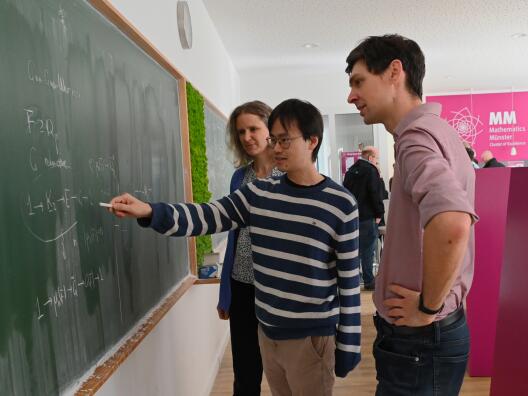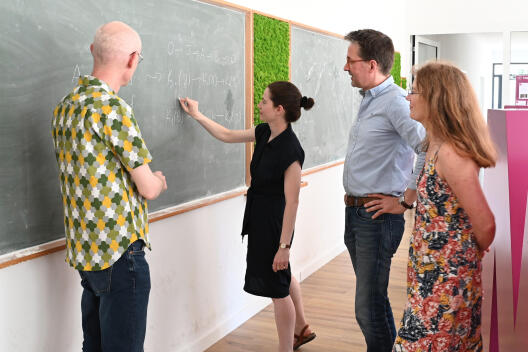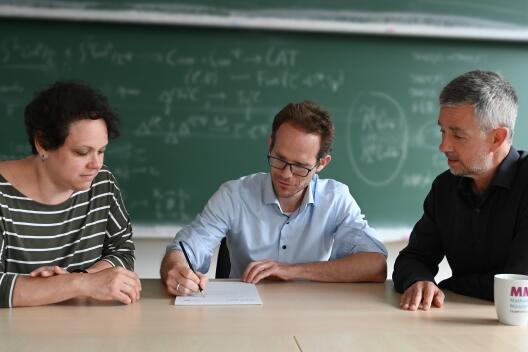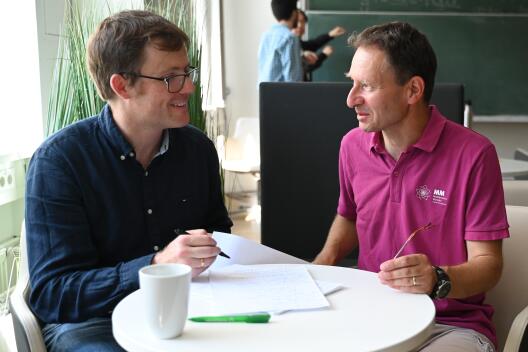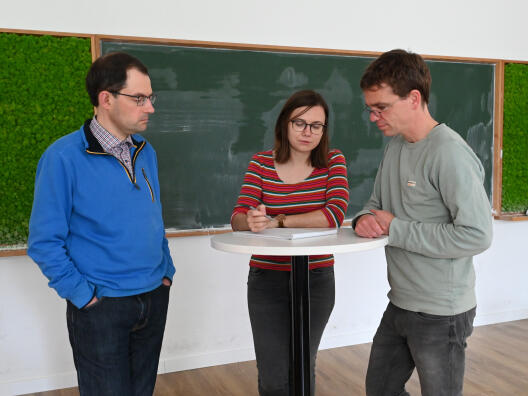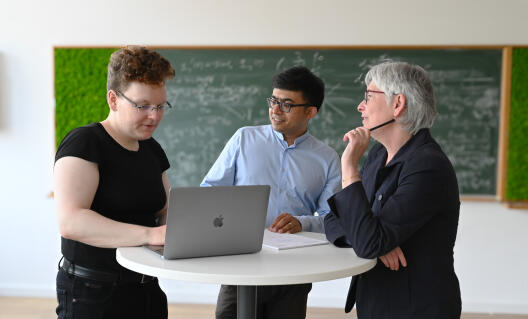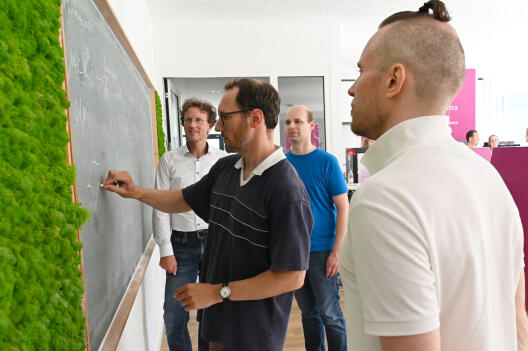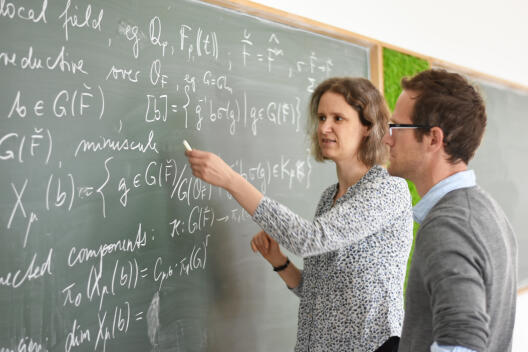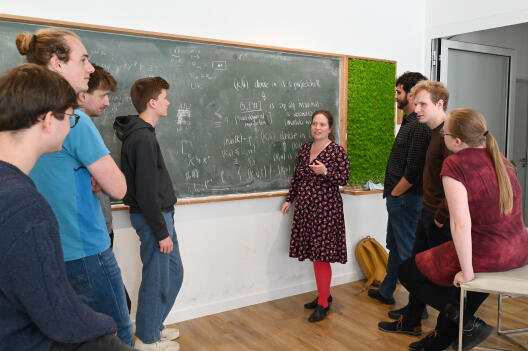Research objectives
At Mathematics Münster (MM), our research aims to implement integrated approaches in order to solve important problems across different mathematical fields. We view mathematical research as an organic whole with countless connections between fields and specifically promote the development of mathematical methods that lead to cross-disciplinary scientific breakthroughs. The integration of research within and across various topics and the dynamic transfer of methods, ideas, and knowledge between mathematical disciplines is central to our strategy (see structural objectives).



